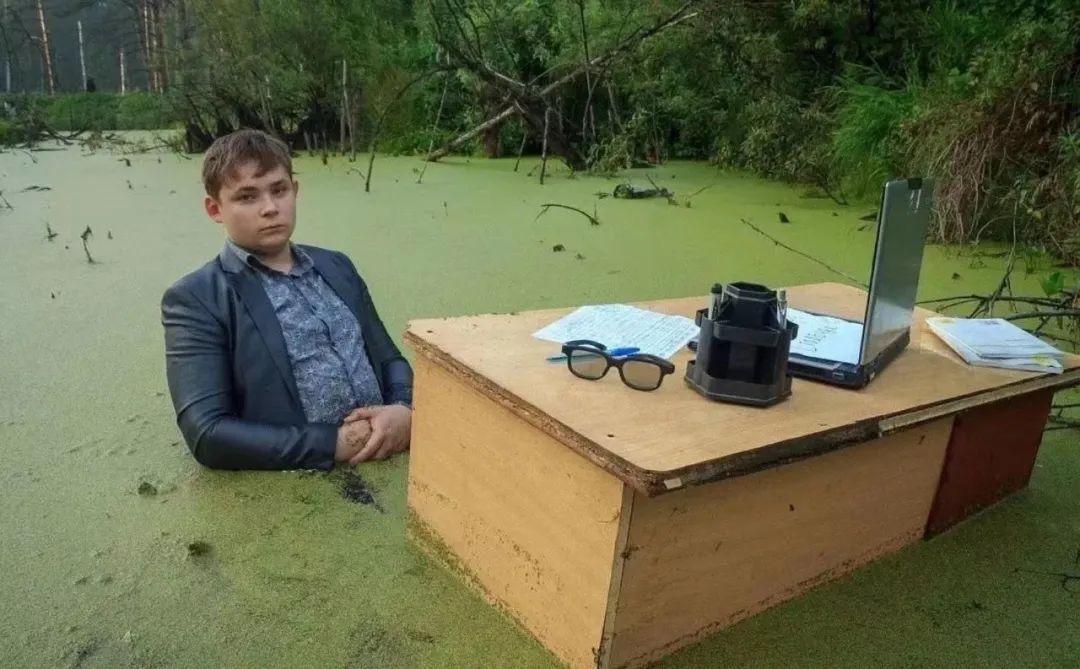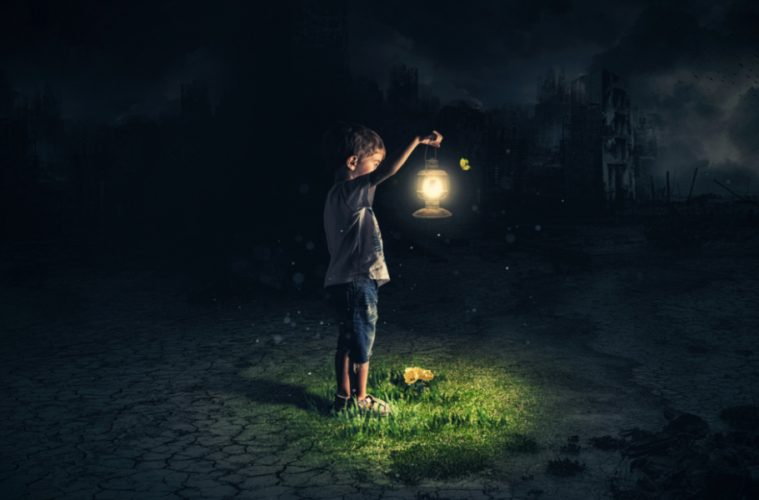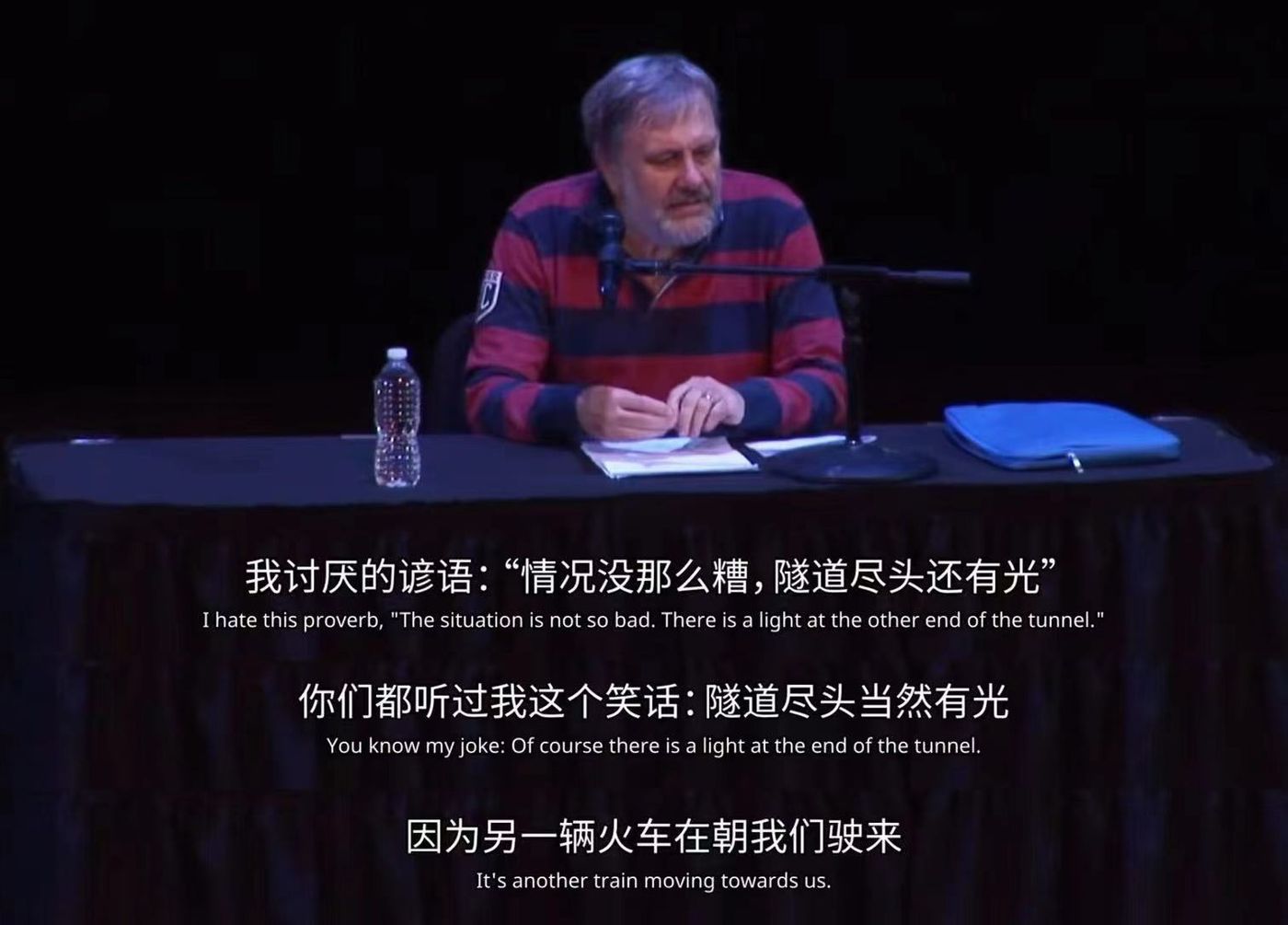
Can we go back to normal life?

After dinner last night, my friends and family went out for a walk. The city where she is located has not been closed, but it has been very tight. It was a night intoxicated by the spring breeze. There were cars on the street, and pedestrians were calling loudly, shouting, and bargaining, as if everything was business as usual, but for some reason, she felt unreal.
She later told me:
I feel like it's a sight in soap bubbles, there's a magic that makes them disappear in an instant. Are they real? Are they living hard, or are they performing, or are they being carried like puppets? Do they know it themselves? I do not know either.
Today's bustling streets may disappear tomorrow. Everything seems to have never been there, never happened, never even existed.
I saw a restaurant that opened, and there were quite a few people eating in it. I suddenly wanted to cry. I thought they went to the restaurant to make me feel at ease. I thank them very much for letting me know that I am still living.
I understand how she feels. This is real life, and it only becomes real life at the moment when we become aware of it. Powerlessness brings alienation, and it makes it clear to us that life is not so much an ocean that embraces us as it is another object outside of us, in which we are and not in it, both actors and audiences .
If the previous life was "comfortable", then the current understanding is "conscious". People open their eyes, see themselves, and see the life in which they live. In a sea of unconsciousness, self-awareness begins to emerge, like the first fish on land.

The inescapable fact is that it takes a strong nerve to see reality, because you are likely to be trapped in a loneliness and self-doubt that is incomprehensible to those around you. That's why so many people espouse the kitsch philosophy of "hard to get confused" - the easiest way to live is to follow the crowd without checking, and all the meaning beyond what life needs is not worth thinking about.
In the domestic environment, this is especially difficult. Someone once told me about their struggles: "I sometimes think, I don't need to think so much, can't I live a good life?! It really doesn't work!" However, it was precisely because of seeing clearly, "Just look down Look, there is nothing under your feet." Thinking about it, a certain philosopher in China once said: "A life without examination is worthless." Socrates is right, but a life that is over-examined cannot be lived.
Sometimes you wonder if this is a good thing or a bad thing: when you open your eyes, you see that you are in a quagmire, and it seems that you can pretend that it is business as usual without opening your eyes. Perhaps the real problem, however, is that the fact of being in a deep quagmire prompts people to open their eyes. At this time, to pretend to sleep again requires a strong ability of self-deception and self-paralysis.
I have also been persuaded by many people around me, either kindly or derisively: "I have nothing to think about so much, aren't I tired?" It was in such conversations that I realized that our understanding of "life" is not the same What's going on: For many people, "living well" refers to a kind of self-reflection that is satisfied with a stable life, which is actually "survival" rather than "life".
The book "The Age of Nothingness" said that many people do not feel the spiritual crisis of modern people, and it is not a problem for them at all. This description seems particularly Chinese:
They just go on with their lives, subsistence, living day after day, year after year, having fun when they can, and not letting problems that seem very confusing and complicated to their neighbors bother them. They don't expect "big" problems to be solved eventually, so they don't take the time to understand. In some ways, they are the most mundane, and perhaps the most fulfilling, of them all.
Countless people live in conditions of barrenness, deprivation, and anxiety, facing a shortage of the products of everyday life and having no time for reflection; in such conditions, reflective activity is beyond their capabilities. By these people's standards, people think about meaning, clinging to the difference between "what is a good life" and "what is a good life", a luxury that is itself an achievement of a particular civilization. On this basis, we must accept that the search for meaning is inherently a privilege.
For many, this in itself is one of life's realities that feels hopeless, and no one seems to be so attached to how life should be that no matter what happens, they accept it, it's just you who have been slow to adapt. Just like the Monkey King in "Journey to the West", when he woke up, he found that Tang Seng had become taciturn, but when he asked in surprise, "Why did Master speak like this", Zhu Bajie replied: "Master has always been like this."

It's been a painful journey of reluctance, behind a home that can't be returned, and in front of you is a glimmer of an uncertain future, and you don't even know if it's a glimmer. Nietzsche once said, with his unique despair and causticism, that optimism about progress was an illusion after the "false dawn" of the Enlightenment, where hope was a trick to trick humanity.
At this time, when we look to the future, the first thing we often see is the past. That youthful, free time seemed to be redemption: before "Paradise Lost", it was a paradise that belonged to us, giving people endless comfort, at least a brief escape, in the cold, unfamiliar moment. However, to borrow Jung's terminology, that's a temptation to "regress": to return to the warm embrace of the unconscious, to remove the distress of excess self-awareness.
Can we go back to normal life? This is often asked, but it is actually the wrong question. Because, intentionally or not, what people mean by "normal life" here is the "good old days", and returning in that sense is impossible, but why should you?
After seeing the reality of life, it takes courage not to back down. It's not easy for anyone, and only then will you truly realize why courage is such a valuable quality.
In The Second Law, Peter Atkins argues that the ultimate fate of the universe most likely has no purpose:
We are descendants of Chaos, and the deep consequence of change is recession. At the root, there is only corruption and an unchecked tide of chaos. Passing and leaving is the end; everything that remains is the direction to that end. This is the bleak outlook we have to accept as we peer deep and dispassionate into the core of the universe.
Commenting on his passage, Richard Dawkins said it in no way meant "a loss of personal hope" but "very rightly a clearing of the false ends of the pretentious" and "a commendable fortitude and calm" . The universe in which we live is indeed very likely to be an inorganic substance, the so-called "heaven and earth are not benevolent, and all things are dogs", but so what? "Who of us really entrusts our life hopes to the ultimate fate of the universe? Of course we wouldn't do it unless we were mad."
Camus said in "The Outsider", "There is no love for life without despair of life". When I read this sentence in the early years, I always felt very incomprehensible, but over the years I gradually realized that if we hadn’t experienced such despair, it would be difficult for us to truly understand what life is, and let’s not talk about how to love it. Only when you realize that everything in the present moment can be shaken at any time will you guard it more firmly. In this sense, living consciously is truly living.
Life will go on whether we like it or not. It is true that the future is chaotic and daunting, but it is precisely because of this that it is necessary for us, as humble as us, to live every day of the present, that is, to fulfill our responsibility to ourselves.
In this accumulation of bits and pieces, it is finally possible for us to transcend our own limitations and achieve a higher level of freedom in our lifetime. To borrow the words of the poet Milosz, "Poetic action foresees the future and accelerates it. s arrival". Only then will we be able to see clearly that there are many possibilities in our lives.
Like my work?
Don't forget to support or like, so I know you are with me..
Comment…